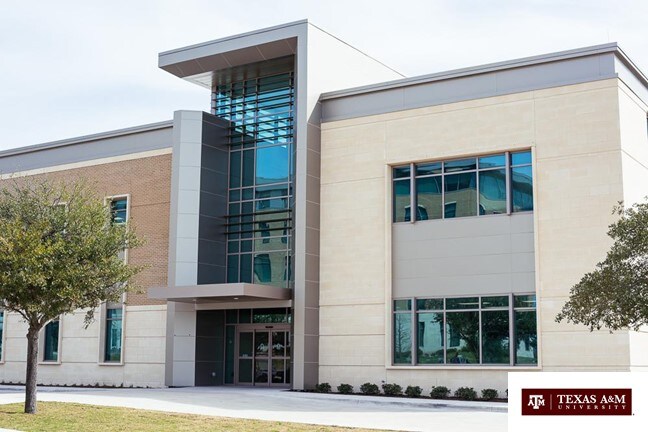Nov 29, 2022
Philips, DoD’s Defense Threat Reduction Agency, and Texas A&M University to Expand Infection Detection and Exposure Monitoring
Clinical trial will help gather physiology data used to further train AI to distinguish between respiratory and non-respiratory infections
Cambridge, Mass. – Royal Philips (NYSE: PHG, AEX: PHIA), a global leader in health technology, the U.S. Department of Defense’s (DoD) Defense Threat Reduction Agency (DTRA), and Texas A&M University’s School of Education and Human Development, its College of Engineering, its School of Medicine, and the Texas A&M Engineering Experiment Station (TEES), today announced the Persistent Readiness through Early Prediction (PREP) clinical trial, aimed at understanding the body’s physiological response to different infections such as pneumococcal pneumonia (respiratory) and typhus (non-respiratory). Philips researchers will analyze the trial data and use it to further train Artificial Intelligence (AI) to differentiate between and predict types of infections. This work builds upon previous research on COVID-19 detection using Philips’ Rapid Analysis of Threat Exposure (RATE) algorithm in a prospective field study involving over 10,000 DoD participants that was recently published in Scientific Reports. The research found that combining commercial off-the-shelf (COTS) wearables with the predictive power of the RATE algorithm can effectively predict COVID-19 exposure days before diagnostic testing. Through the PREP clinical trial, the RATE algorithm’s risk scoring could potentially be expanded to discriminate between multiple types of infections. By expanding it to include common respiratory infections like pneumococcal pneumonia, RATE can help further fine-tune infection scores to distinguish between these diseases.
While infectious diseases can threaten the health and productivity of all aspects of society, it is particularly troublesome for organizations that provide essential services. Philips has been collaborating with Texas A&M’s Center for Translational Research in Aging & Longevity (CTRAL), the School of Medicine, TEES Center for Remote Health Technologies and Systems (CRHTS), and TEES Center for Applied Technology (TCAT) to implement the infrastructure, hardware, and software logistics required to complete the clinical study.
Participants in the clinical study are provided with a variety of COTS wearable devices to monitor their daily response for four weeks. During this time, the participants visit CTRAL on six separate occasions to complete a variety of measurements onsite in their clinic. Measurements include standard vitals monitoring using Philips patient monitoring IntelliVue system, onsite audio and photo recording, questionnaires, and biomarkers from breath and blood. After the study concludes, the collected data will be fed into the Philips machine learning (ML) pipeline to expand the RATE capability to predict infection as well as the type of infection beyond just COVID-19.
We are looking at how to empower people to take better control of their health from the devices that they are already wearing on their wrist or hand, and connect these to the devices in-hospital that are constantly monitoring us. This allows us to predict these diseases before patients show symptoms and further extends the power and the impact of AI.
Dr. Franklin Schuling
Head of Research for Philips North America
“Innovation does not happen in a vacuum, it requires an ecosystem that fosters cross-collaboration and new ideas, pushing the boundaries of technology,” said Dr. Franklin Schuling, Head of Research for Philips North America. “We are looking at how to empower people to take better control of their health from the devices that they are already wearing on their wrist or hand, and connect these to the devices in-hospital that are constantly monitoring us. This allows us to predict these diseases before patients show symptoms and further extends the power and the impact of AI.”
For more information about the study, visit www.ctral.org/participate.
About Royal Philips
Royal Philips (NYSE: PHG, AEX: PHIA) is a leading health technology company focused on improving people's health and well-being and enabling better outcomes across the health continuum – from healthy living and prevention, to diagnosis, treatment and home care. Philips leverages advanced technology and deep clinical and consumer insights to deliver integrated solutions. Headquartered in the Netherlands, the company is a leader in diagnostic imaging, image-guided therapy, patient monitoring and health informatics, as well as in consumer health and home care. Philips generated 2021 sales of EUR 17.2 billion and employs approximately 79,000 employees with sales and services in more than 100 countries. News about Philips can be found at www.philips.com/newscenter.
About Research at Texas A&M University
As one of the world's leading research institutions, Texas A&M is at the forefront in making significant contributions to scholarship and discovery, including in science and technology. Research conducted at Texas A&M generated annual expenditures of more than $1.148 billion in fiscal year 2021. Texas A&M ranked 14th in the most recent National Science Foundation’s Higher Education Research and Development Survey based on expenditures of more than $1.131 billion in fiscal year 2020. Texas A&M’s research creates new knowledge that provides basic, fundamental and applied contributions resulting, in many cases, in economic benefits to the state, nation and world. To learn more, visit Research@Texas A&M.
Topics
Contacts

Silvie Casanova
Philips North America Tel: +1 781-879-0692
You are now exiting the Philips United States (US) site and entering the Philips global site. This content is intended for a global audience. It may not apply to the US and should not be interpreted as meeting US standards, executive orders or regulations.
ContinueMedia assets










